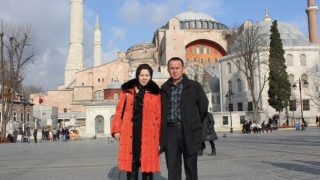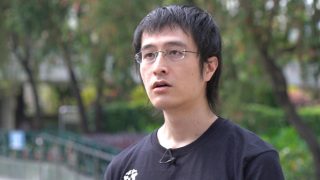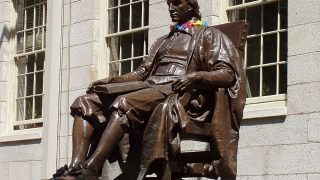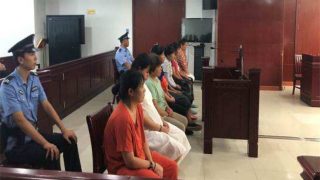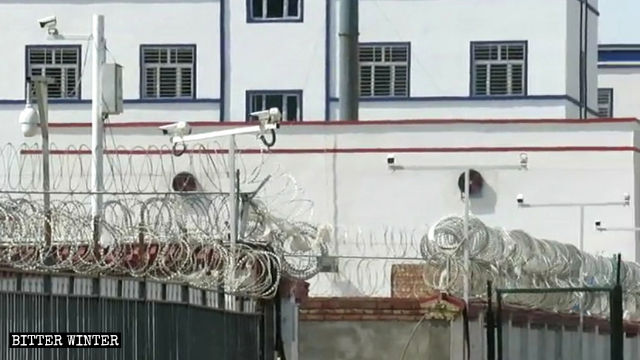
Police officers from inland China, who worked in Xinjiang, disclose details of control measures employed by the CCP to suppress Uyghur Muslims.
by Chang Xin
“There are security checkpoints every 500 meters along all streets in Urumqi, the capital of Xinjiang, each guarded by over two dozen police officers,” a young assistant police officer, in his 20s, working in northern Xinjiang told Bitter Winter. “Four checkpoints are formed into a station in charge of patrolling in designated areas 24/7. If an incident occurs in one checkpoint, ten or so police cars with about 50 officers from the other three will arrive immediately after they hear an alarm on walkie-talkies.” He added that according to the local public security maintenance requirements, police officers should appear at the scene of an incident within one minute after an alarm. Those who fail to do so are punished.
The officer said that over 100,000 law enforcement officers are stationed in Urumqi. Numerous vacancies continue to be announced for positions in public security organs throughout Xinjiang. Because over 90 percent of Uyghurs fail to pass government-required political reviews to work in the public service, large numbers of police officers from across China are being dispatched to Xinjiang for “security maintenance.” After they complete their task and return home, the Public Security Department rewards them with merits.
“Each police officer is equipped with a jingwutong smartphone connected to government databases to check information about any person in Xinjiang: where they refuel their cars, stay in hotels, browse the internet, take a train, and alike. Even information on their families is checked,” the officer continued. “The police can question and investigate anyone walking on the street at any time. An Uyghur I know was stopped 34 times one day.” Officers can inspect people’s phones looking for “sensitive” information, like critical remarks about the government. People can be sent to transformation through education camps for this, the officer added, also, if they hold religious beliefs.
“Uyghurs are afraid when they see us; they take a detour noticing a police car in the distance,” the officer said.
Another officer added that people with police records are subjected to long-time surveillance. “Three generations of their immediate family members will be guilty by association, disqualified from employment, exams for civil service, or state benefits. Not only their travels are restricted, but also their families are controlled and prohibited from leaving the city,” he said. The officer remembered an Uyghur from Bole, the capital of in Xinjiang’s Bortala Mongolian Autonomous Prefecture, who was put on the surveillance list for three years. Even after the time was up, an alarm was triggered when his family members wanted to go to Urumqi to see a doctor because his name was still on the list. The relatives were told to return home.
A police officer from the same prefecture revealed to Bitter Winter that most transformation through education camps in Xinjiang are built in relatively remote places. “They are not easy to spot for people who are not local,” he added. “Intersections on the way to camps are guarded by special police. If someone gets on these roads by accident, they will be intimidated by police officers with guns.”
“Even officers on duty have to go through three checkpoints before entering these camps because of top secrecy,” he continued. The officer recalled a visit to one of the camps for a fire safety inspection. “In the first checkpoint, I had to hand in my electronic devices and other things, like nail clippers. I was given a permit and was allowed to pass to the second checkpoint, where I underwent a body search and scan, having been told to take off my shoes. Then, I came to the third checkpoint inside the camp. I was told not to contact the ‘students’ inside. Personnel used walkie-talkies to communicate since cellphones are banned to prevent taking photos and leaking information.”
A police officer who has worked in Xinjiang for two years told Bitter Winter that he feels very sorry “for the people who have to stay in these camps for a long time and study Maoism and Xi Jinping’s policies every day.” “They are not the same after they are released: they usually can’t tell the good from bad and have lost normal judgment ability,” he said. “What’s more, their relatives often refuse to acknowledge them, fearing to be implicated.”
Another police officer, who was hired to work in a transformation through education camp via an online recruitment system in 2018, remembered that over a dozen people were kept in a cell ten square meters in size. According to him, there were only two beds, which detainees had to share to sleep, taking turns.
The officer remembered that once he dozed off while on duty, and was found by his superior, for which he was punished to sit on a tiger bench, a torture device used to interrogate inmates, for 24 hours. The man believes that these camps are not suitable for people. About two-thirds of his 30 colleagues couldn’t stand it and resigned.
Source: Bitter Winter
